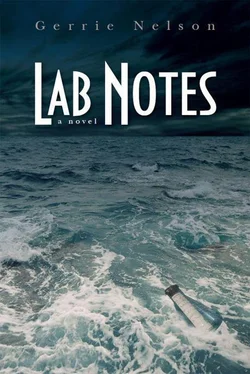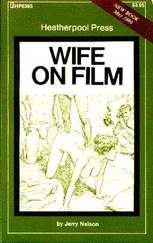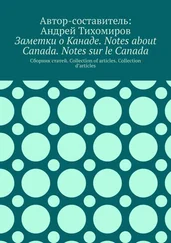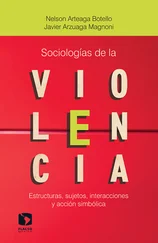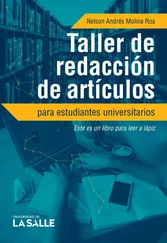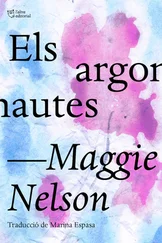Diane returned the master keys to Wilbur and headed home squinting to follow the road’s edge in near-zero visibility.
It wasn’t until she pulled up the driveway to the treehouse that it rushed at her. She saw it clearly, sitting alone on an otherwise crowded notebook page— Leonard Everly . The only things distinguishing it were the three question marks that followed.
“Mr. Lee?”
“Yes.”
“This is Diane Rose. I’m a scientist at Bayside Research in Texas. I… um…” Deep breath. “First, I want to offer my condolences. I’m told that your nephew Harry was a very special person as well as a… Mr. Lee?”
No response. She’d lost the connection. “Rats”! She’d have to start again. She hit redial.
“Hello.”
“Mr. Lee, this is Diane Rose again. We were disconnected. I was saying that—”
“Dr. Rose. I do not wish to be rude. But I will not speak to you about my nephew. Not now, nor at any time in the future.”
Diane sat at her desk staring at the phone. Hu Lee had hung up on her. Twice.
She tried not to take it personally; Hu Lee didn’t even know her. But he did know Bayside Research. What might Harry Lee have told his uncle that poisoned him against BRI?
She had spent the past few days practicing her lines and building her courage to make that call. She had checked the internet for the time difference with Hong Kong and phoned from home in the morning to be sure and catch him after diner, but before bedtime. All for naught.
But she had no intention of giving up. She had to find a way to get Hu Lee to talk to her. Vincent had written of his strong belief that Harry Lee’s technology and Peruvase had suffered the same fate. Hu Lee could unknowingly hold the key to the whereabouts of Peruvase .
Diane tapped her pen on the desk for several seconds. Then, “Eureka!”
The newspaper article about Harry Lee’s death had stated Hu Lee was an investment banker. She remembered that Tung Chen’s father was also in banking. She reached for her mouse and clicked the email icon on her monitor. Maybe she could get to Mr. Lee through the back door to the vault.
By the time Diane finished composing her note to Tung Chen, two new emails appeared in her in-box.
Jane Galvin, Diane’s old lab mate, now a professor at Texas A&M, had sent the first email. Subject: Re: Request for info on David Crowley. Jane’s message was not a welcome one. She reported that David Crowley had resigned from poultry science in the 90’s after being accused of inventing data in one of his research projects. It was thought that he went to work at a veterinary clinic after leaving the university. Jane added that if she discovered anything more, pro or con, she’d send it on.
Diane exhaled wearily, rested her head against her chair back and closed her eyes. So there it was: Fowl play in his turkey treatise. Okay, not funny. She considered David a friend. And even though evidence against him seemed to be piling up, what did it point to? She’d reserve judgment until all the facts were in.
Diane frowned as she clicked on the next email; the way the morning was stacking up, it was sure to be bad news.
The message came from Olimpia Garza asking Diane to speak at a Conference of International Ethnobotanists in a month. It was being held on Aruba where Olimpia had her vacation cottage. And she invited Diane to stay with her.
But that wasn’t all. Olimpia proposed a jungle trek after the conference. It would be a surprise destination, a place she had never shared with another scientist. Diane’s heart jumped in anticipation.
Olimpia Garza was responsible for Diane’s specializing in ethnobotany. She had been popping into Diane’s life, providing professional opportunities and needed diversions, ever since their first meeting at a National Science Foundation Botany Camp at Pittsburgh’s Phipps Conservatory.
Olimpia, a visiting instructor, was a graduate student at the Universidad de Bogotá in Colombia at the time.
Olimpia was twenty-three years old. Diane was twelve.
Arriving early the first morning of camp, Diane goes exploring and finds a secret cul-de-sac down one of the winding pathways under the glass sky. For several moments she stands transfixed, studying a beautiful, but somehow disturbing green orchid made up of small flower clusters. The sign identifies it as a “Malaxis.”
Just as she succumbs to the urge to touch it, Olimpia Garza appears—like a high-energy field moving in.
“They call it ‘the adder’s mouth’ because of its resemblance to the open mouth of a snake,” Olimpia says.
Diane jerks her hand back from the predator flower and turns to stare in amazement at Olimpia. It’s not Olimpia’s hyper presence, her smooth olive skin or the tempest of dark hair that seems to be wired to her personality; it’s her speech. Other than on television, it’s the first time Diane has ever heard English spoken with a Spanish accent.
Olimpia introduces herself, then explains when and where the Malaxis orchid was first discovered.
Diane listens, fascinated, as syllable after exotic syllable curls elegantly around Olimpia’s tongue and rolls out as English. It occurs to her that if calligraphy could be spoken, it would probably sound like that.
For the duration of the camp, she follows Olimpia around, inhaling her every word. The two of them develop a bond, and on the last day Olimpia gives Diane a rough-cut necklace made from a jungle tree fungus. Olimpia calls it an amulet and says it’s for good luck. Diane vows to treasure it always, and she decides then and there that she will become fluent in Spanish. And she will learn about the people who speak it.
Huck barked at something outside, bringing Diane back to the present. She reread Olimpia’s email and hurriedly composed her acceptance for both the conference and the jungle trek.
* * *
Diane left the University of Texas medical library at Galveston and drove out Harborside Drive heading home. Having gathered more than enough material for her ethnobotany conference paper, she experienced a sense of accomplishment, the first time in months. She pulled up to a red light at 23rd Street, second car back.
An enormous cruise ship sat at dockside, which probably explained the throng of tourists crossing the street.
The light up ahead turned green, but the car in front waited patiently for the Sunday afternoon crowd to clear the crosswalk.
Suddenly, Diane’s eyes fastened on a War Eagle bumper sticker in the oncoming lane. “War Eagle” was the battle cry of Auburn’s Tigers whose nickname had come from an eighteenth century poem. David Crowley had explained all that to her and even recited part of the poem. He had attended vet school at Auburn.
She watched as David’s red Jeep Grand Cherokee made a right turn onto 23 rdStreet. Finally the car in front of her moved on.
Diane had every intention of driving straight ahead. But, entering the intersection, she flipped on her turn signal and whipped to the left, in front of oncoming traffic. She found herself traveling up 23rd Street, three cars behind David Crowley. With a start, she realized she was spying on him. So much for her magnanimous gesture of withholding judgment.
David made it through the next intersection before a trolley, moving along The Strand, blocked Diane’s view. By the time the trolley cleared the intersection, the Jeep was out of sight.
Diane crossed The Strand and crawled along checking parked cars. Then, easing through the next intersection, she spotted the bright red jeep off to the right, along Mechanic Street. It sat in front of The Tremont House hotel, apparently waiting to be valet parked. Diane came to a dead stop in mid-intersection, prompting a lot of horn-blowing behind her. She made a tight right.
Читать дальше
